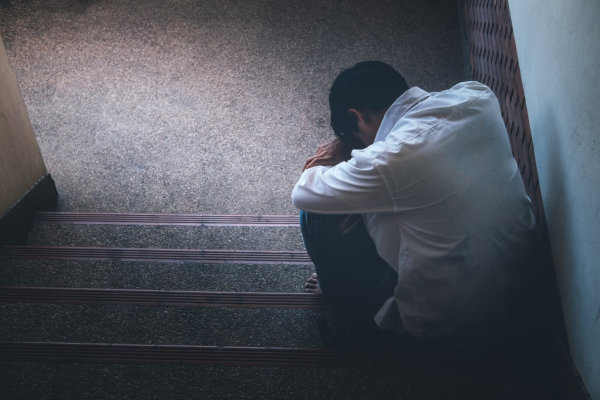
For those with an alcohol addiction, quitting for good can seem like an impossibility. Alcohol dependency results in highly unpleasant withdrawal symptoms and cravings upon cessation, and it is these effects that often compel would-be recoverers to relapse.
While staging an alcohol detox at home without medical supervision is not advised and in rare cases can be fatal, people do frequently choose this method. Those who, for whatever reason, must forego a clinical detox should be aware of the risks involved and under no circumstances should do it without someone else there in case of a medical emergency.
The Risks
Some people opt for an alcohol detox at home for comfort reasons. Keep in mind, however, that this “comfort” is often more psychological than physical. Moreover, physical comfort and safety are often better achieved with a clinical detox, as medications can be administered that alleviate many of the worst – and possibly life-threating – symptoms of withdrawal.
Unfortunately, there is much uncertainty associated with detox from alcohol. Relapse aside, there is also a very real possibility of severe depression, anxiety, and suicidal ideations. Finally, a condition known as Delirium Tremens (DTs) can occur. Symptoms include confusion, hallucinations, and seizures, and complications can ultimately result in death.
Preparation
If you do decide that detoxing at home is right for you, it’s critical that you do it safely. Here are some things to consider when undergoing an alcohol detox at home:
- Remove all alcoholic beverages from your home – this may sound obvious, but it’s an essential first step when self-detoxing. Moreover, when you first begin experiencing withdrawal symptoms, you may not be able to control your cravings. It’s far better to avoid the temptation altogether.
- Free up your schedule – For some, clearing one’s schedule for days or weeks may seem implausible, but it’s necessary for a detox to be successful. There will likely be benefits from taking time off work or school and relinquishing some responsibilities – at least temporarily – to focus on recovery.
- Find support – Just because you’re undergoing an alcohol detox at home doesn’t mean you should suffer through it alone. Find a friend or family member who can keep you safe during the process and who can get help if withdrawal symptoms get too serious.
Nutrition and Hydration During Alcohol Detox

When your body is going through withdrawals, food will probably be the last thing on your mind. Alcohol withdrawal causes a wide variety of symptoms including fatigue, anxiety, depression, loss of appetite, nausea, and vomiting.
These symptoms typically last between 24-72 hours and may significantly curb your appetite.
Remember that these symptoms are normal, but make sure you drink plenty of fluids and stay hydrated during this time as it will help rid your body of toxins.
Water, juice, and broth are healthy choices during the early stages of withdrawal. Don’t forget, however, that eating healthy is an important part of your recovery because alcohol alters how your body breaks down and uses nutrients.
Once you can start eating again, it’s crucial to focus on consuming a healthy, balanced diet. Eat foods from all food groups in sufficient amounts to help meet your caloric needs. Eat as many fruits and vegetables as you can stand, but don’t neglect whole grains and lean protein.
Take Vitamin and Mineral Supplements
If you’ detox at a hospital or inpatient or outpatient addiction treatment center, you will usually be prescribed medications to help relieve withdrawal symptoms. At home, you won’t have that luxury. But there are vitamins and mineral supplements you can take, however, that can be beneficial and help remove toxins. Some of these include B vitamins, vitamin C, vitamin E, calcium, magnesium, and multivitamins.
Pros and Cons

Alcohol detox can be a hazardous process, which is why most medical professionals and addiction experts believe it is best handled in a reputable clinical environment.
Alcohol detoxification causes physical and emotional symptoms that can be severe, and in many cases, very challenging to suffer through without medical assistance.
While detoxing at home may seem like the best method financially, it’s also very risky. While an alcohol detox at home is most often discouraged by medical professionals, it can be done. If you opt to detox from alcohol at home, make sure you’re in a safe, alcohol-free environment and have access to support from family and/or friends who can help you get through it.
Please remember, if at any point the symptoms of alcohol withdrawal are too painful or severe, you should seek help from a medical professional immediately.
Treatment for Alcohol or Drug Addiction
If you are able to undergo a medical detox, this will be the first step in treatment for addiction. Those who detox at home should also strongly consider professional treatment following this process. Once the body has rid itself of toxins, those seeking a full recovery should seek participation in either an inpatient or outpatient environment that includes evidence-based approaches such as behavioral therapy, counseling, and group support.
Our programs are comprehensive, customized, and include medical and mental health staff who specialize in addiction. We can provide you with the tools and support you need to regain your life and enjoy longstanding sobriety, happiness, and wellness.